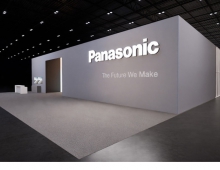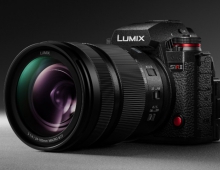
Panasonic to Delist from NYSE And Terminate Registration with the SEC
Panasonic's board of directors has resolved to apply for voluntary delisting of its American Depositary Shares (ADSs) from the New York Stock Exchange (NYSE).
In connection with the delisting, Panasonic intends to file for the termination of registration of its ADSs and its reporting obligations under the Securities and Exchange Act of 1934, as amended.
Panasonic listed its ADSs on the NYSE in December 1971 mainly to promote trading of its shares and to raise the visibility of the Panasonic brand in the U.S. Since then, Panasonic has made efforts to enhance disclosures for shareholders and investors, in addition to complying with the disclosure requirements of U.S. securities laws and regulations, providing financial statements in accordance with U.S. generally accepted accounting principles, and establishing internal controls in accordance with the Sarbanes-Oxley Act of 2002.
However, Panasonic says that the external environment has significantly changed as indicated by the increases in trading volume of Japanese stocks through stock exchanges in Japan by over seas investors due to the internationalization of the Japanese financial and capital markets, as well as the narrowing of the gap between U.S. and Japanese disclosure standards with respect to financial reporting due to a series of amendments to Japanese laws and regulations and accounting standards.
While Panasonic believes the initial objectives of the U.S. ADS listing were mainly achieved, it judges that the continued listing on the NYSE is not economically justified, taking into account the fact that the trading volume of Panasonic's ADSs on the NYSE accounts for only a small fraction of the total trading volume of Panasonic's shares. Therefore, Panasonic has decided to apply for voluntary delisting of its ADSs from the NYSE and for termination of registration of its ADSs with SEC under the Exchange Act.
Panasonic expects to be delisted from NYSE in late April, and to complete the deregistration with SEC by July.
Panasonic's president Kazuhiro Tsuga promised Thursday to improve thecompany's profitability over the next two years while announcing a midterm business plan and strategy for the fiscal year that begins next month. As part of a three-year business plan to March 2016, the struggling electronics manufacturer said it is aiming to rack up a net profit of at least 50 billion yen ($532 million) in the fiscal year ending March 2014.
Mr. Tsuga said that the company has decided against the "last resort" option of exiting its TV and mobile phone businesses, adding that it will not only continue with those businesses but also stop them from bleeding red ink. Like Sharp Corp., Panasonic bet big in 2000s when the electronics industry moved from cathode-ray tube televisions to flat-screen displays. Panasonic heavily invested in Japan to build production capacity for the new TV screens, but an unrelenting drop in prices and a strong yen eroded profitability and when sales started to slow in recent year, Panasonic was saddled with costly investments that weren't paying off. Panasonic also backed the wrong technology with plasma displays, as consumers preferred liquid crystal displays' brighter screens.
Osaka-based Panasonic is expecting to rack up a 765 billion yen ($8.1 billion) annual loss for the fiscal year ending this month.
Panasonic said Fumio Ohtsubo will also step down as chairman in June ahead of schedule to take responsibility for the recent struggling results.
In related news, Panasonic also signed a a memorandum of understanding (MOU) with Nippon Express Co., Ltd to transfer a part of its shares in Panasonic Logistics Co., Ltd., a wholly owned subsidiary of Panasonic, to Nippon Express.
According to the MOU, Panasonic will transfer to Nippon Express 2,399,999 shares (66.6%) of Panasonic Logistics out of 3,600,000 shares issued in total. Panasonic Logistics said it would maintain its current service level.
"The share Transfer will permit Nippon Express to include in its group a new company that will serve as a foundation on which to build a logistics platform in the electronics industry for future growth, and will enable Panasonic to bolster the competitiveness of its group logistics via Panasonic Logistics by utilizing the know-how of Nippon Express as a total logistics company," the companies said in a statement.
Nippon Express and Panasonic are currently engaged in detailed discussions with the goal of finalizing a definitive agreement by the end of May 2013. The share transfer is currently expected to be completed in July 2013.
Panasonic listed its ADSs on the NYSE in December 1971 mainly to promote trading of its shares and to raise the visibility of the Panasonic brand in the U.S. Since then, Panasonic has made efforts to enhance disclosures for shareholders and investors, in addition to complying with the disclosure requirements of U.S. securities laws and regulations, providing financial statements in accordance with U.S. generally accepted accounting principles, and establishing internal controls in accordance with the Sarbanes-Oxley Act of 2002.
However, Panasonic says that the external environment has significantly changed as indicated by the increases in trading volume of Japanese stocks through stock exchanges in Japan by over seas investors due to the internationalization of the Japanese financial and capital markets, as well as the narrowing of the gap between U.S. and Japanese disclosure standards with respect to financial reporting due to a series of amendments to Japanese laws and regulations and accounting standards.
While Panasonic believes the initial objectives of the U.S. ADS listing were mainly achieved, it judges that the continued listing on the NYSE is not economically justified, taking into account the fact that the trading volume of Panasonic's ADSs on the NYSE accounts for only a small fraction of the total trading volume of Panasonic's shares. Therefore, Panasonic has decided to apply for voluntary delisting of its ADSs from the NYSE and for termination of registration of its ADSs with SEC under the Exchange Act.
Panasonic expects to be delisted from NYSE in late April, and to complete the deregistration with SEC by July.
Panasonic's president Kazuhiro Tsuga promised Thursday to improve thecompany's profitability over the next two years while announcing a midterm business plan and strategy for the fiscal year that begins next month. As part of a three-year business plan to March 2016, the struggling electronics manufacturer said it is aiming to rack up a net profit of at least 50 billion yen ($532 million) in the fiscal year ending March 2014.
Mr. Tsuga said that the company has decided against the "last resort" option of exiting its TV and mobile phone businesses, adding that it will not only continue with those businesses but also stop them from bleeding red ink. Like Sharp Corp., Panasonic bet big in 2000s when the electronics industry moved from cathode-ray tube televisions to flat-screen displays. Panasonic heavily invested in Japan to build production capacity for the new TV screens, but an unrelenting drop in prices and a strong yen eroded profitability and when sales started to slow in recent year, Panasonic was saddled with costly investments that weren't paying off. Panasonic also backed the wrong technology with plasma displays, as consumers preferred liquid crystal displays' brighter screens.
Osaka-based Panasonic is expecting to rack up a 765 billion yen ($8.1 billion) annual loss for the fiscal year ending this month.
Panasonic said Fumio Ohtsubo will also step down as chairman in June ahead of schedule to take responsibility for the recent struggling results.
In related news, Panasonic also signed a a memorandum of understanding (MOU) with Nippon Express Co., Ltd to transfer a part of its shares in Panasonic Logistics Co., Ltd., a wholly owned subsidiary of Panasonic, to Nippon Express.
According to the MOU, Panasonic will transfer to Nippon Express 2,399,999 shares (66.6%) of Panasonic Logistics out of 3,600,000 shares issued in total. Panasonic Logistics said it would maintain its current service level.
"The share Transfer will permit Nippon Express to include in its group a new company that will serve as a foundation on which to build a logistics platform in the electronics industry for future growth, and will enable Panasonic to bolster the competitiveness of its group logistics via Panasonic Logistics by utilizing the know-how of Nippon Express as a total logistics company," the companies said in a statement.
Nippon Express and Panasonic are currently engaged in detailed discussions with the goal of finalizing a definitive agreement by the end of May 2013. The share transfer is currently expected to be completed in July 2013.





















